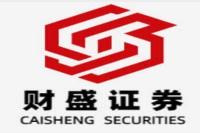Volkswagen's Massive Restructuring: A Deep Dive into the 10,000+ Job Cuts and What It Means for the Future of Auto Manufacturing
Meta Description: Volkswagen job cuts, automotive industry restructuring, cost-cutting measures, future of automotive manufacturing, German auto industry, labor relations, VW's transformation, impact on employees, strategic realignment.
Imagine this: one of the world's largest automakers, a behemoth synonymous with German engineering and global reach, announces plans to slash over 10,000 jobs. It's not a gentle nudge, folks; it's a seismic shift, a dramatic restructuring that sends shockwaves through the automotive industry and beyond. This isn't just about numbers on a spreadsheet; this is about real people, families, and livelihoods. Volkswagen's ambitious plan to cut more than 10,000 jobs, as reported by Manager Magazin, is a stark reminder that even the giants aren't immune to the pressures of a rapidly changing global market. We're not talking about minor tweaks here; this is a full-blown overhaul, a strategic realignment designed to navigate the turbulent waters of the electric vehicle revolution, escalating competition, and ever-increasing pressure to deliver sustainable profitability. But is this drastic move a smart gamble, a necessary evil, or a sign of deeper, more systemic problems? Let's delve into the intricacies of this monumental decision, exploring the underlying causes, potential consequences, and what it all signifies for the future of automotive manufacturing. We'll dissect the reported plans, examine the potential impacts on employees and the wider economy, and offer insights based on years of experience covering the automotive sector. Prepare yourselves for a comprehensive analysis that goes beyond the headlines and gets to the heart of this momentous development. Get ready to unravel the complexities of Volkswagen's transformation and what it means for the industry's future. This isn't just another news story; it's a case study in the challenges and opportunities facing the global automotive landscape. Buckle up, because this is going to be a wild ride!
Volkswagen's Cost-Cutting Measures: A Necessary Evil or a Sign of Deeper Trouble?
Volkswagen's announcement to cut over 10,000 jobs is undeniably a significant event. While the company claims these are part of broader cost-cutting measures, the sheer scale of the reductions raises concerns. It's not just about streamlining; it's a potential indicator of deeper structural issues within the organization. Are they reacting to market pressures, internal inefficiencies, or a combination of both? This restructuring isn’t just about the bottom line; it’s about repositioning VW for the long haul in a fiercely competitive market.
The move, as reported in Manager Magazin, hasn't been met with universal approval. Unions are understandably concerned, and rightly so. Job security is a paramount concern, and the social impact of such widespread layoffs cannot be ignored. The ripple effect on local communities heavily reliant on VW's workforce will also be significant. It's a delicate balancing act: the need for profitability versus the responsibility towards employees and the wider societal impact.
This isn't just a numbers game; it's about people's lives. The human cost of these decisions must be acknowledged and addressed. Retaining skilled workers, transitioning employees into new roles, and providing robust support packages are crucial aspects of managing the human side of restructuring. A responsible approach involves transparency, collaboration with employee representatives, and a commitment to minimizing the hardship experienced by affected individuals. This isn't just about slashing costs; it's about managing the transition humanely and ethically.
The Electric Vehicle Revolution and its Impact on Volkswagen's Workforce
The shift toward electric vehicles (EVs) is undeniably a game-changer for the automotive industry. It requires massive investments in new technologies, manufacturing processes, and infrastructure. This transition is capital-intensive and presents significant challenges for established automakers. Volkswagen, like many others, is grappling with this transition, and the job cuts could be seen as a necessary step to free up resources and redirect investments towards EV development and production.
The internal combustion engine (ICE) era is slowly fading, and the skills required for EV production are different. This necessitates retraining and upskilling programs for existing employees, a significant investment that Volkswagen must consider alongside cost-cutting measures. A failure to adapt to the changing skillset requirements could leave VW at a competitive disadvantage in the long run. The transition isn't just about technology; it's about talent, and retaining and developing the right expertise is crucial for success in the EV market. This transition requires careful planning, substantial investment, and a commitment to reskilling the workforce to take on the challenges of the future. This isn't just about surviving; it's about thriving in a new era of automotive manufacturing.
Key Challenges Facing Volkswagen in the EV Transition:
- High Capital Expenditure: The shift to EV production requires significant upfront investments in new factories, equipment, and battery technology.
- Supply Chain Disruptions: Securing a reliable supply of batteries and other critical components is a key challenge.
- Competition: The EV market is becoming increasingly competitive, with established automakers and new entrants vying for market share.
- Consumer Adoption: Encouraging widespread consumer adoption of EVs requires overcoming range anxiety, charging infrastructure limitations, and affordability concerns.
- Regulatory Landscape: Navigating the ever-evolving regulatory environment relating to emissions standards and safety regulations is another challenge.
The Broader Implications for the German Automotive Industry and Beyond
Volkswagen's actions are not isolated incidents. The entire German automotive industry is facing similar pressure. The global shift towards EVs, increasing competition from Asian and American manufacturers, and the push for sustainability are forcing automakers to re-evaluate their strategies and make tough decisions. This isn't just a Volkswagen problem; it's a systemic issue affecting the entire sector.
The impact extends beyond the automotive industry. The job losses will have a ripple effect on the German economy, affecting related industries and local communities. Government support and retraining initiatives will be crucial in mitigating the negative consequences. This isn't merely an internal issue for Volkswagen; it's a matter of national economic importance for Germany, highlighting the interconnectedness of the automotive industry and the broader economic landscape.
Frequently Asked Questions (FAQs)
Q1: Are these job cuts permanent?
A1: While the current announcements indicate significant reductions, the permanence varies depending on individual roles and departments. Some roles may be eliminated entirely, while others might involve redeployment or retraining for different positions within the company. The specifics will likely be clarified in the coming months as the restructuring plan unfolds.
Q2: What support will affected employees receive?
A2: Volkswagen has a responsibility to support employees affected by the job cuts. Details of the support packages, including severance packages, retraining programs, and outplacement services, are expected to be negotiated with labor unions and will vary based on the individual circumstances and length of service.
Q3: How will these cuts impact Volkswagen's production capacity?
A3: The impact on production capacity will depend on which departments and facilities are affected. Some areas may experience reduced output in the short term, while others may see changes in production lines to accommodate the shift toward EVs. The overall goal is to optimize production efficiency and align it with changing market demands.
Q4: What is the likelihood of further job cuts in the future?
A4: Further job cuts remain a possibility, depending on the success of Volkswagen's restructuring efforts and the evolution of the market. The automotive industry is undergoing rapid transformation, and continuous adaptation may require further adjustments to workforce levels to maintain competitiveness.
Q5: How will this affect Volkswagen's competitiveness?
A5: The short-term impact could be negative, with potential disruptions to production and workforce morale. However, the long-term goal is to improve efficiency, streamline operations, and free up resources for investments in future technologies, ultimately enhancing competitiveness in the long run. The success of this strategy hinges on VW's ability to execute the restructuring plan effectively and adapt to the changing landscape of the automotive industry.
Q6: What role will technology play in the restructuring process?
A6: Technology will play a significant role in streamlining operations and optimizing production processes. Automation, AI-powered systems, and data analytics will be instrumental in driving efficiency gains and reducing costs. This technological transformation necessitates a workforce that is equipped with the necessary skills for the future, highlighting the crucial role of retraining and upskilling initiatives.
Conclusion
Volkswagen's decision to cut over 10,000 jobs is a bold, albeit difficult, step in its strategic realignment. The automotive industry faces unprecedented challenges, and adapting to the electric vehicle revolution, intensifying competition, and evolving consumer demands demands decisive action. While the human cost is significant, the long-term success of Volkswagen hinges on its ability to navigate this transformation effectively. Transparency, collaboration with employees and unions, and a commitment to a humane and responsible approach to restructuring will be critical in determining the ultimate success of this ambitious undertaking. The coming years will be pivotal in determining whether this drastic measure proves to be a strategic masterstroke or a painful misstep. Only time will tell.



